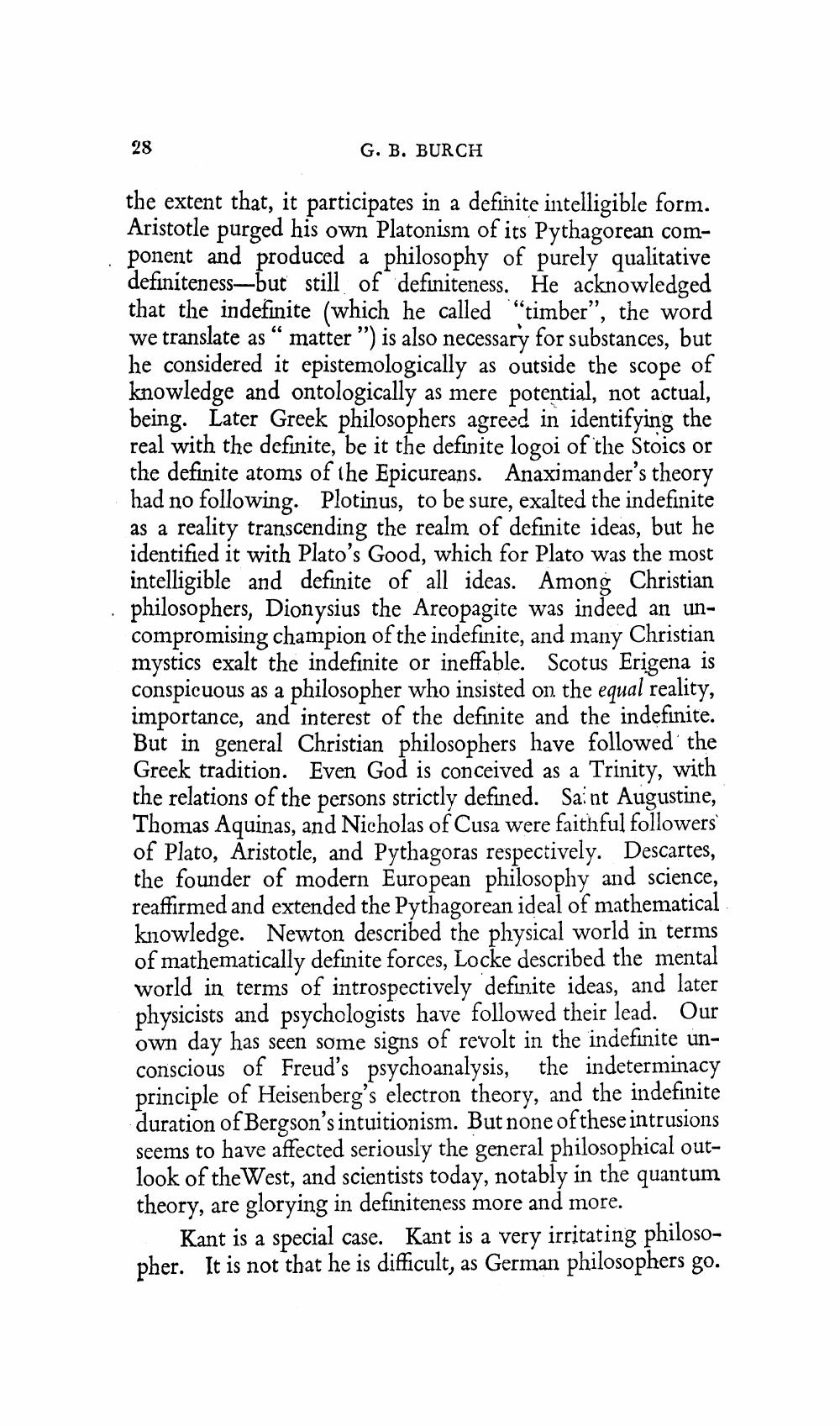Book Title: Definite And Indefinite Author(s): George Burch Publisher: George Burch View full book textPage 4
________________ 28 G. B. BURCH the extent that, it participates in a definite intelligible form. Aristotle purged his own Platonism of its Pythagorean component and produced a philosophy of purely qualitative definiteness—but still of definiteness. He acknowledged that the indefinite (which he called "timber”, the word we translate as “ matter”) is also necessary for substances, but he considered it epistemologically as outside the scope of knowledge and ontologically as mere potential, not actual, being. Later Greek philosophers agreed in identifying the real with the definite, be it the definite logoi of the Stoics or the definite atoms of the Epicureans. Anaximander's theory had no following. Plotinus, to be sure, exalted the indefinite as a reality transcending the realm of definite ideas, but he identified it with Plato's Good, which for Plato was the most intelligible and definite of all ideas. Among Christian philosophers, Dionysius the Areopagite was indeed an uncompromising champion of the indefinite, and many Christian mystics exalt the indefinite or ineffable. Scotus Erigena is conspicuous as a philosopher who insisted on the equal reality, importance, and interest of the definite and the indefinite. But in general Christian philosophers have followed the Greek tradition. Even God is conceived as a Trinity, with the relations of the persons strictly defined. Saint Augustine, Thomas Aquinas, and Nicholas of Cusa were faithful followers of Plato, Aristotle, and Pythagoras respectively. Descartes, the founder of modern European philosophy and science, reaffirmed and extended the Pythagorean ideal of mathematical knowledge. Newton described the physical world in terms of mathematically definite forces, Locke described the mental world in terms of introspectively definite ideas, and later physicists and psychologists have followed their lead. Our own day has seen some signs of revolt in the indefinite unconscious of Freud's psychoanalysis, the indeterminacy principle of Heisenberg's electron theory, and the indefinite duration of Bergson's intuitionism. But none of these intrusions seems to have affected seriously the general philosophical outlook of the West, and scientists today, notably in the quantum theory, are glorying in definiteness more and more. : Kant is a special case. Kant is a very irritating philosopher. It is not that he is difficult, as German philosophers go.Page Navigation
1 2 3 4 5 6 7 8 9 10 11 12
